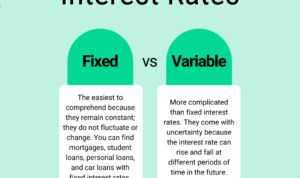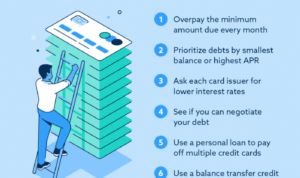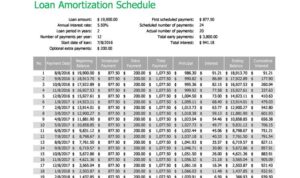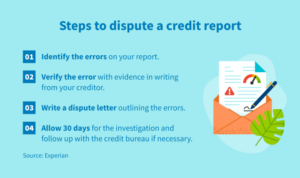Dive into the world of financial savvy with our guide on how to avoid debt traps. Get ready to uncover the secrets to staying afloat in the sea of expenses and come out on top of your money game.
In this article, we will explore the ins and outs of recognizing warning signs, effective budgeting strategies, responsible credit card usage, building an emergency fund, and seeking financial assistance to steer clear of debt traps.
Understanding Debt Traps
Debt traps are situations where individuals find themselves in a cycle of borrowing money to pay off existing debts, leading to a never-ending cycle of debt accumulation. This can happen due to high-interest rates, poor financial decisions, or unexpected expenses.
Common Debt Traps
- Payday Loans: These short-term, high-interest loans can easily trap individuals in a cycle of borrowing to cover expenses until the next paycheck.
- Credit Card Debt: Making only minimum payments on credit card bills can lead to high-interest charges and a growing balance that becomes difficult to pay off.
- Auto Title Loans: Using the title of a vehicle as collateral for a loan can result in high fees and interest rates, putting the borrower at risk of losing their vehicle.
Consequences of Debt Traps
- Financial Stress: Constantly dealing with debt payments can cause significant stress and anxiety, affecting mental health.
- Damage to Credit Score: Failing to make timely payments can damage credit scores, making it harder to secure future loans or credit.
- Limited Financial Freedom: Being stuck in a debt trap can limit opportunities for saving, investing, or making major purchases.
Identifying Warning Signs
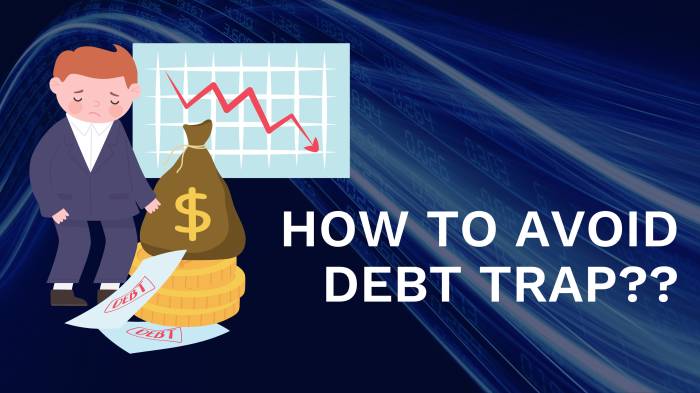
Identifying warning signs of heading towards a debt trap is crucial to avoid financial pitfalls. It’s important to recognize these indicators in personal finances to take proactive steps to prevent falling into a debt trap.
Key Indicators
- Consistently spending more than earning
- Increasing reliance on credit cards or loans to cover expenses
- Missing or making late payments on bills
- Ignoring mounting debt and not having a plan to pay it off
- Regularly borrowing money from friends or family
Recognizing Warning Signs
- Track your expenses and income regularly to ensure you are not overspending.
- Review your credit card and loan statements to monitor the amount of debt you are accumulating.
- Set up reminders for bill payments to avoid missing deadlines.
- Create a budget and debt repayment plan to manage your finances effectively.
Scenarios Comparison
| Scenario 1: | Someone consistently spends more than they earn, leading to increasing debt levels. |
|---|---|
| Scenario 2: | Another individual relies heavily on credit cards for everyday expenses without a plan to pay off the balances. |
| Scenario 3: | A person starts borrowing money from friends or family to cover basic needs due to financial mismanagement. |
Effective Budgeting Strategies
Effective budgeting is crucial in avoiding debt traps and maintaining financial stability. By implementing various budgeting techniques, creating a realistic budget, and tracking expenses, individuals can better manage their income and avoid falling into debt.
Track Your Expenses
- Start by recording all your expenses, including small purchases and bills, to get a clear picture of where your money is going.
- Use apps or spreadsheets to categorize your expenses and identify areas where you can cut back.
- Regularly review your expenses to ensure you are staying within your budget limits.
Create a Realistic Budget
- Determine your monthly income and fixed expenses, such as rent, utilities, and loan payments.
- Allocate a portion of your income to savings and emergency funds to avoid relying on credit in case of unexpected expenses.
- Set realistic limits for discretionary spending on non-essential items like dining out or shopping.
Implement the Envelope System
- Allocate cash into envelopes for different categories like groceries, entertainment, and transportation.
- Once an envelope is empty, refrain from spending more in that category until the next budget cycle.
- This system helps control overspending and encourages conscious spending habits.
Automate Your Savings
- Set up automatic transfers from your checking account to your savings or investment accounts.
- By automating savings, you prioritize building wealth and avoid the temptation to spend money earmarked for savings.
- Consider setting up direct deposit for a portion of your paycheck to go directly into savings accounts.
Responsible Credit Card Usage
Using credit cards irresponsibly can lead to a pile of debt that can be hard to climb out of. It’s important to understand the risks associated with misusing credit cards and learn how to use them wisely to avoid financial trouble.
Risks of Misusing Credit Cards
- Accumulating high-interest debt: Carrying a balance on your credit card from month to month can result in hefty interest charges, making it harder to pay off your debt.
- Overspending: Having a credit card may tempt you to spend more than you can afford, leading to a cycle of debt.
- Negative impact on credit score: Missing payments or maxing out your credit card limit can harm your credit score, making it difficult to borrow in the future.
Tips for Responsible Credit Card Usage
- Pay off your balance in full each month: By paying off your credit card balance in full before the due date, you can avoid accruing interest charges and debt.
- Set a budget and stick to it: Create a budget that includes your credit card expenses and make sure to stay within your means to avoid overspending.
- Avoid cash advances: Cash advances come with high fees and interest rates, so it’s best to avoid using your credit card for cash withdrawals.
- Monitor your spending: Keep track of your credit card transactions to ensure you are not exceeding your budget and can catch any fraudulent activities early.
Benefits of Paying Off Credit Card Balances in Full Each Month
- Save money on interest charges: By paying off your balance in full each month, you can avoid paying interest, saving you money in the long run.
- Improve your credit score: Consistently paying off your credit card balance demonstrates responsible financial behavior and can boost your credit score over time.
- Earn rewards: Some credit cards offer rewards such as cash back, travel points, or discounts on purchases when you pay off your balance in full each month.
Building an Emergency Fund
Having an emergency fund is crucial in preventing debt traps as it serves as a financial safety net during unexpected situations like medical emergencies, car repairs, or sudden job loss. Without an emergency fund, individuals may resort to taking out loans or using credit cards, leading to accumulating debt.
Starting and Maintaining an Emergency Fund
- Set a realistic savings goal: Begin by determining how much you want to save in your emergency fund. Financial experts recommend saving at least three to six months’ worth of living expenses.
- Automate your savings: Set up automatic transfers from your checking account to your emergency fund to ensure consistent savings each month.
- Cut unnecessary expenses: Review your budget and identify areas where you can cut back on spending to allocate more funds towards your emergency fund.
- Use windfalls wisely: Instead of splurging windfall money like tax refunds or bonuses, consider diverting a portion of it towards your emergency fund.
Recommended Amount to Save in an Emergency Fund
Financial experts generally advise saving three to six months’ worth of living expenses in an emergency fund to cover unforeseen financial setbacks.
Seeking Financial Assistance
When it comes to managing debt effectively, there may come a time when seeking professional financial advice is necessary. Financial counselors or advisors can provide valuable insights and strategies to help individuals avoid debt traps and improve their financial situation.
When to Seek Professional Financial Advice
It is appropriate to seek professional financial advice when you are struggling to manage your debt on your own, when you feel overwhelmed by your financial situation, or when you are unsure about the best strategies to get out of debt.
Resources for Effective Debt Management
- Non-profit credit counseling agencies: These organizations offer free or low-cost services to help individuals create a debt management plan and improve their financial literacy.
- Financial literacy programs: Many community centers, libraries, and online platforms offer resources and workshops to help individuals understand and manage their finances better.
- Government resources: Agencies like the Consumer Financial Protection Bureau (CFPB) provide information and tools to help individuals make informed financial decisions.
Role of Financial Counselors or Advisors
Financial counselors or advisors can help individuals by assessing their financial situation, creating a personalized debt management plan, negotiating with creditors on their behalf, and providing ongoing support and guidance.

